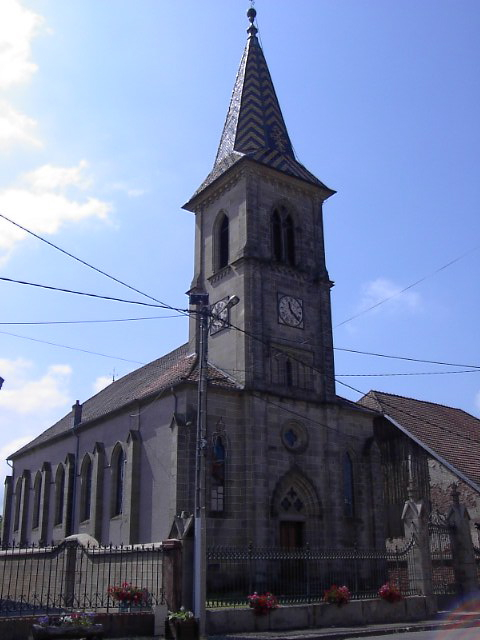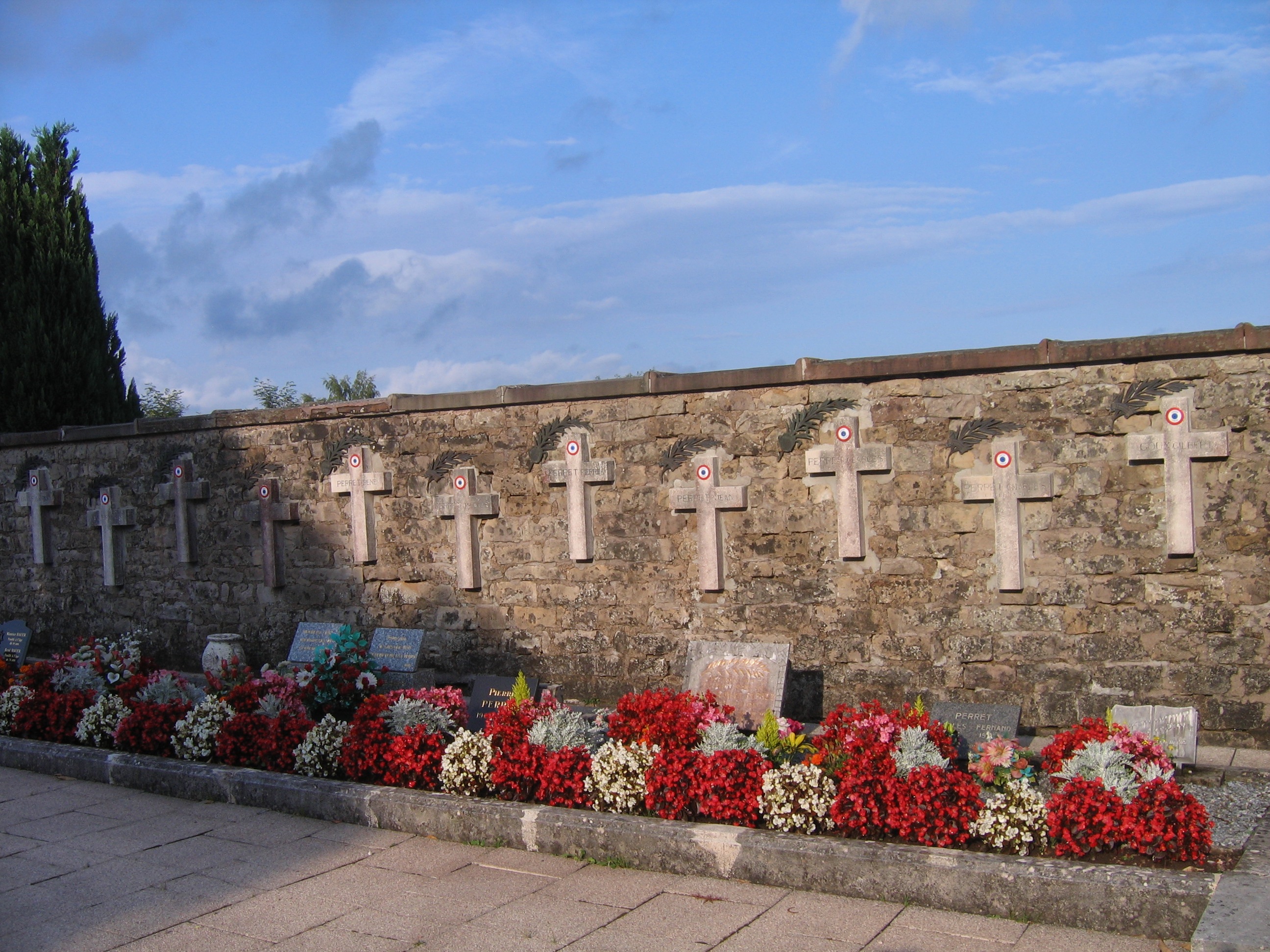The Pastor and the Resistance
In this traditionally Lutheran region of France, each village has its church, or temple, at its heart. Since the protestant reformation in Europe in the 16th century, the people of the region around Montbéliard have been Lutheran. Their pastors have always been community leaders. Pastor Marlier served in Etobon during the occupation of France by the Germans, and he provided self-sacrificing leadership to the village.
When the escaped prisoners of war began to arrive in Etobon, it was Pastor Marlier whose advice the villagers sought. He drew maps of the region, and helped as an interpreter with the little English he knew. Marlier and his wife cared for the injured and sick in their own home, offering shelter, hot water for bathing and shaving, and food.
 As the Etobon maquis become more involved in guerilla activities, Marlier allowed them to store their machine guns and explosives in the steeple of the church. The parsonage was used as the central kitchen for the camps in the woods where the escaped prisoners were hidden. When it looked as though the Germans would search the parsonage, Marlier and a few others hid the huge cooking pots, full of food, under the altar in the church.
As the Etobon maquis become more involved in guerilla activities, Marlier allowed them to store their machine guns and explosives in the steeple of the church. The parsonage was used as the central kitchen for the camps in the woods where the escaped prisoners were hidden. When it looked as though the Germans would search the parsonage, Marlier and a few others hid the huge cooking pots, full of food, under the altar in the church.
When the men of Etobon were arrested, Marlier was marched with them to Chenebier. He survived the massacre of September 27, but was deported to Buchenwald. Somehow, he lived through that ordeal, and was able to return to his family at Etobon after the war. His son, Michel, born in February 1944, has recently retired as a Lutheran pastor in the region.

 Katherine Douglass
Katherine Douglass